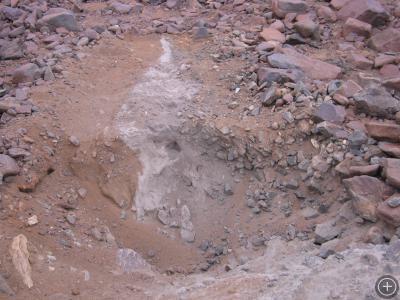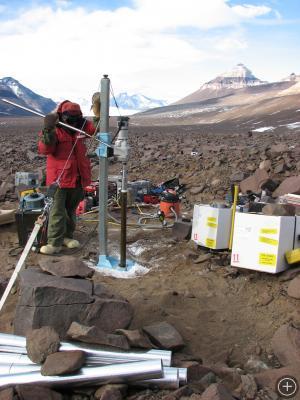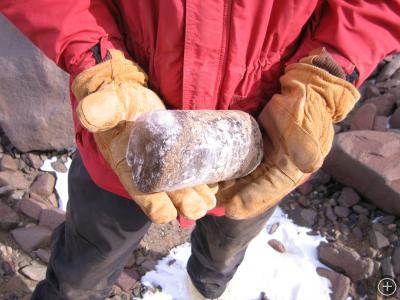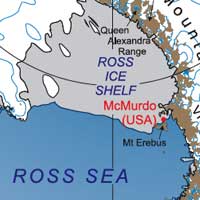Age Matters
MCMURDO STATION, ANTARCTICA– The primary science objective for our field team this season is to core buried glacier ice to depths of 40+ meters. Previous efforts have successfully drilled and recovered ice at depths of 28 m but the ice still appears contaminated with lenses of sand size sediment trickling down into the ice from the overlying till due to the natural thermal fracturing of the glacier.
The outstanding question is how old is the ice? Ash deposits overlying the ice are dated to as old as 8.1 Ma (million years ago) which would make the underlying glacier the oldest ice yet discovered on our planet. To further convince skeptics that the ice is indeed old, the principal investigators of the grant (David Marchant, Boston University, and Michael Bender, Princeton University) are attempting to date the age of the ice directly.

An in-situ ash wedge in debris overlying buried ice. The wedge is approximately 30 cm across and 40 cm tall. Such deposits can be dated to give a minimum age for the overlying glacial debris.
To understand how this is done we need to go back to when the planet was forming 4.6 billion years ago. Since the formation of the earth, there has been a slow release of gas from the interior of the planet to the atmosphere (i.e. degassing via volcanic activity). One gas in particular is an isotope of Argon. This isotope does not decay thus its concentration is slowly building up in the earth’s atmosphere over time. Atmospheric gas trapped in old ice would have less Argon isotope compared to recently formed glacier ice. The principal investigators will use this technique to analyze the gases trapped within the glacier ice we collect during this field season and determine an age of the ice. If indeed it is the oldest ice yet found on earth, we will have the opportunity to directly measure important greenhouse gases such as CO2 at timescale millions of years back into earth’s history.













Wow that is so cool.I learned so much from all of you!
Thanks for the blog!
4.6 billion years old…. you crazy scientists have the weird ideas.
I actually understood that- awesome! I feel smarter. good luck down there